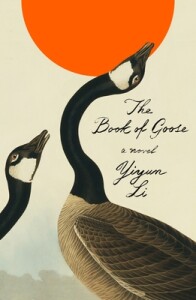
I’ve been a fan of Yiyun Li’s writing ever since I picked up a copy of her first book A Thousand Years of Good Prayers in Toronto shortly after it was released in 2006. In her latest novel we meet Agnès and Fabienne in 1950s rural France. Only 13, they have already seen a lot of death, not just the war but the death of Agnès’s brother after his return from a German prisoner of war camp and of Fabienne’s older sister in childbirth.
The two are inseparable, linked in one of those intense adolescent friendships—do boys have them too?—that ignore the rest of the world. Fabienne, the leader, boils over with mischievous, sometimes violent games that Agnès eagerly joins. She says, “I gave Fabienne what she wanted: her Agnès. I did not give this Agnès to others, but what they asked of me I did my best to accommodate.”
Agnès says of her friend, “Some people are born with a special kind of crystal instead of a heart . . . That crystal in place of a heart—it makes things happen. To others.” Fabienne yearns for the excitement of the world outside their village while Agnès yearns merely to be with her friend, to live in the world Fabienne creates.
Then Fabienne comes up with a scheme for the two of them to write a book. She dictates her dark stories—an American GI is executed; a young woman suffocates her newborn and leaves it in a pig trough—for Agnès to record in her excellent handwriting. Fabienne decides to drag in the local postmaster, reasoning that as a widower with no friends, he must be lonely and bored.
What happens with the book and how it affects the girls’ friendship follow. As shown in the quote above, the book is narrated by Agnès, but an adult Agnès, married and living in Pennsylvania where she raises geese.
In my writing community, we have been talking some about how to sustain momentum in a story when you have a passive protagonist. One way is to have a mesmerizing voice, which this story certainly has. I kept trying to put it down in order to tackle more of my to-do list, but was unable to stay away.
It’s an unusual voice and an odd story. What I saw in it, and treasured, were the kinds of friendships I remember from my youth, and also the shifting of power within those friendships over the years. I saw the yearning for freedom, and the question of how much freedom is enough.
As I was reading, it seemed a meandering story, but in retrospect it comes together as an astute psychological portrait, a fairy tale, a story of secrets and social pressures. It will not leave me alone.
Have you read anything by Yiyun Li?
